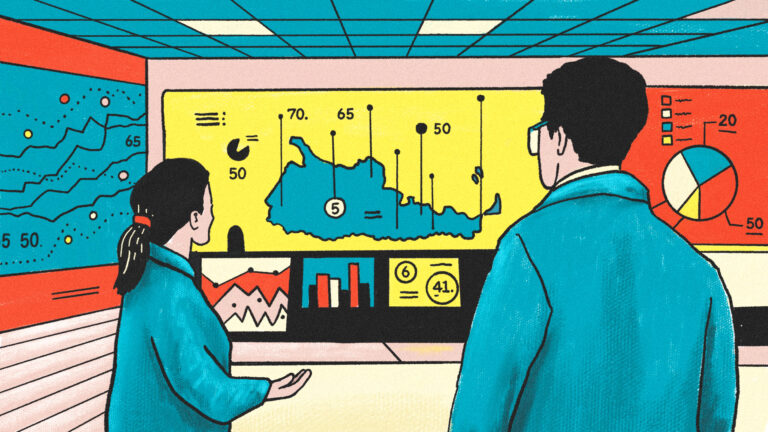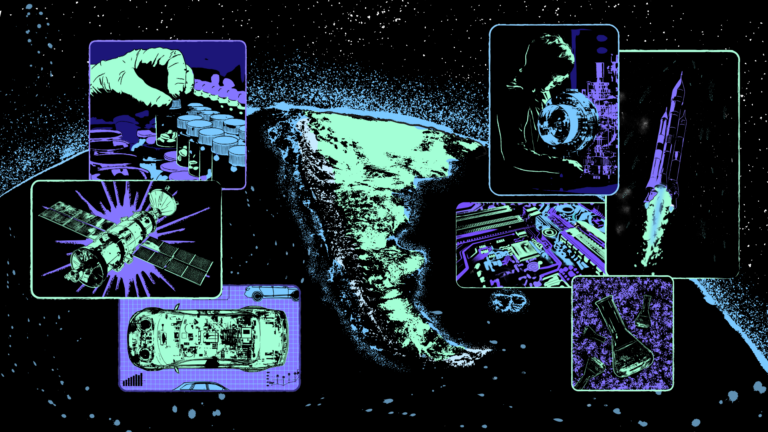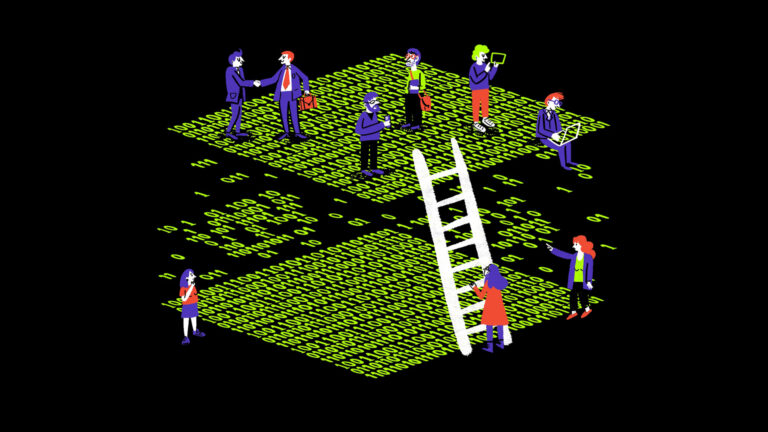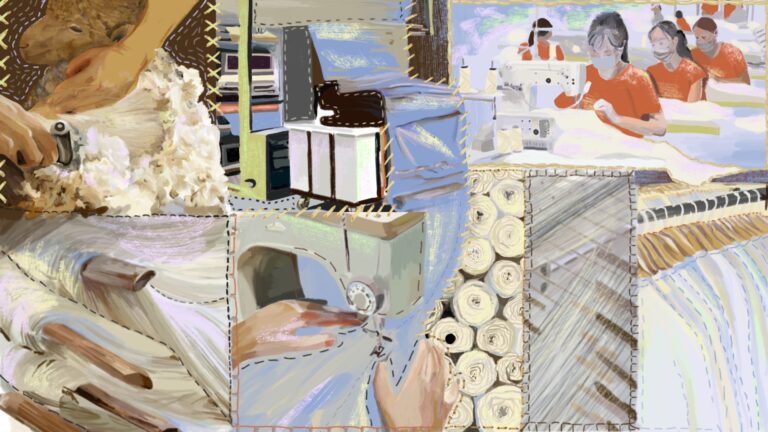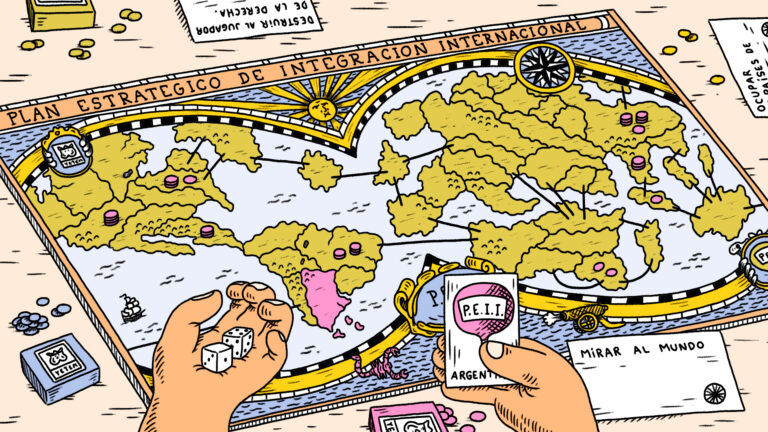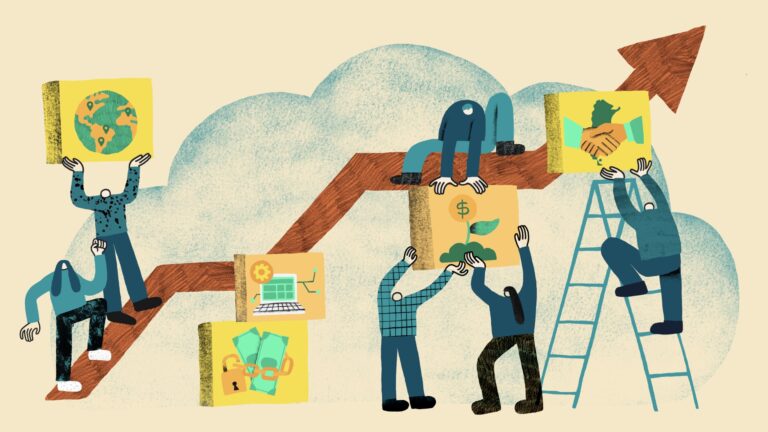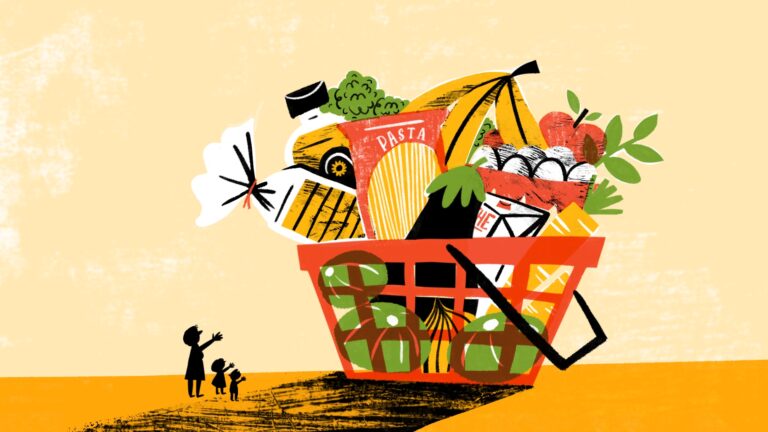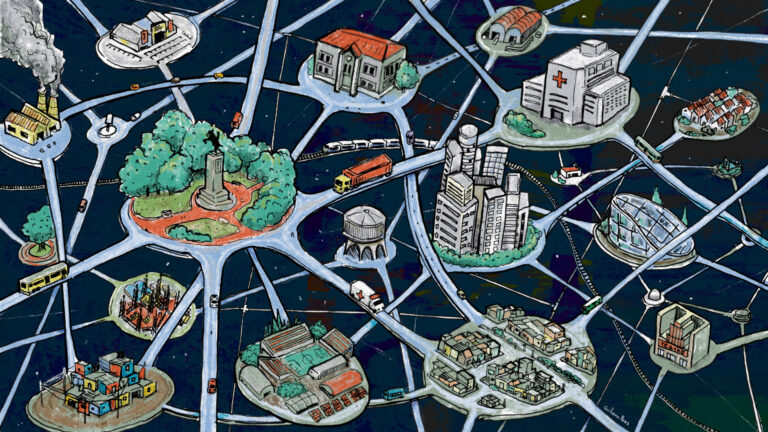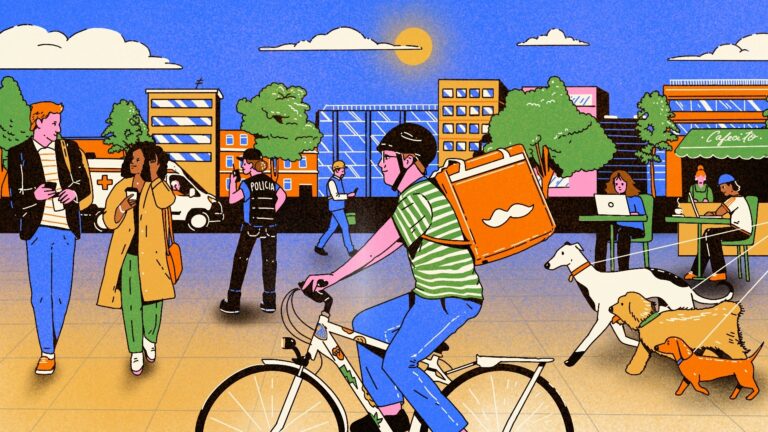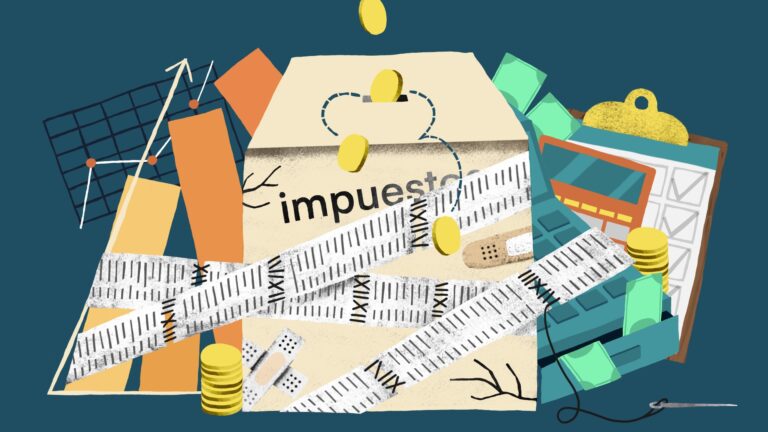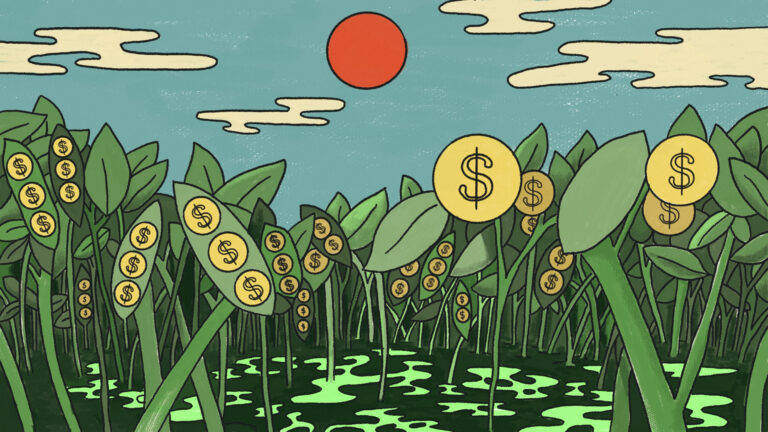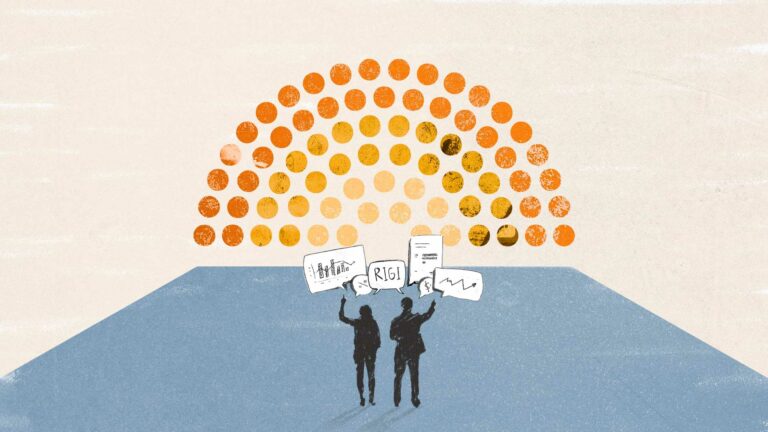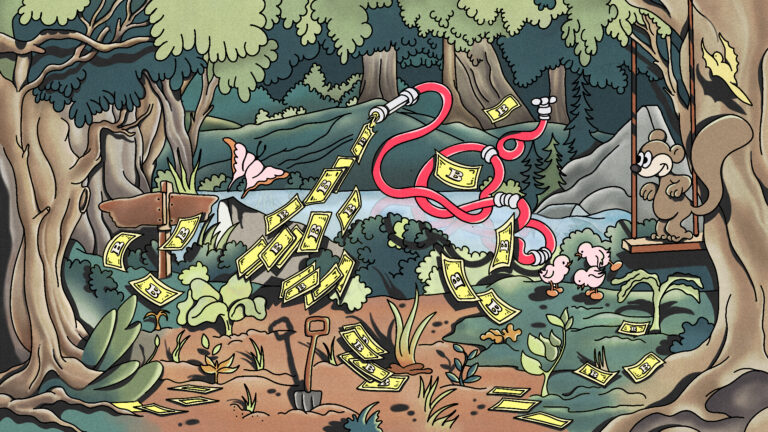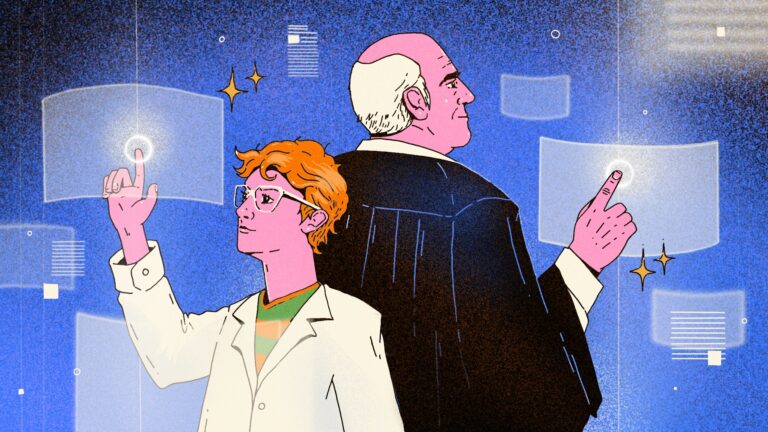2024
A year up to the challenge
This has been a year out of the ordinary. Argentina faces great challenges as the question of its development remains open and the path to it is still unclear. We contribute to this collective endeavour by bringing research and projects for sustainable and inclusive growth to the public conversation. Considering all the forms this conversation can take: media, public debates, social networks, academia, political platforms. In search of like-minded voices and the desire to bring together new ones. These are the projects we have produced this year to make development the talk of the town.
Where are we coming from, where are we, where do we want to go, where do we want to go? To answer these questions, Argendata was born, a site where we generated and made public thousands of key data on environment, development, macroeconomics, labour, and industry. But it is not only about data: it is a tool to make those data make sense and serve to understand Argentina. That is the way to transform it.
Illustration: Pint0rcito.
In the context of the global renaissance of industrial policy, the “Argentine industry” has a long history. But behind that label, there are dissimilar industries, with differences in terms of technology, complexity, dynamism, export capacity and employment generation. If we want to design an effective industrial policy, it is necessary to know the nature of these differences: only in this way will we be able to unblock the debate on the value of our industries and look at this 21st century without ideological overalls.
Illustration: Boomba.inc.
Argentina is a pioneer in this non-manufacturing industry, with a track record that gives it certain comparative advantages and, at the same time, new challenges. The sector can generate even more foreign currency and generate more quality employment. An analysis to think about its development, the role of the State, its salaries and the type of jobs women and men have access to.
Illustration: Brenda Ruseler.
The textile industry is often in the middle of the debate: on the one hand, it creates many jobs; on the other, it is sustained by protectionist measures that, together with chronic macro instability, generate tensions that are reflected in clothing prices in our country. Intelligently rethink this industry so that it generates more value, improves the prices of basic goods and provides higher-quality employment.
Illustration: Clara Koppmann.
Decisions about which industries to boost cannot be made only by looking inward. Promoting national productive development is not possible without an eye on the world. An international diagnosis to design a productive development strategy. Looking at the world to identify the strategic sectors that offer us the possibility of inserting ourselves into global value chains.
Ilustración: Guido Ferro.
What is Argentina going to sell to the world? The question that guides this series of interviews was asked by a Japanese delegation to the economic team of President Alfonsín’s government in the mid-1980s. This question has been in the air for 40 years. A podcast with experts, officials and businessmen who try to answer it, and offer insights on the sectors capable of expanding the country’s wealth base.
Illustration: Jimena Zeitune.
Macroeconomic stability is a condition of possibility to make the productive leap. We project conditions to guarantee debt sustainability, ward off the spectre of default, and find a virtuous path to economic development.
Illustration: Natalia Aguerre.
To grow, we must ensure that the basic needs of every person are met. Food plans -with special attention to children and adolescents- must be kept up to date and allow for a floor of well-being throughout society. Improving the lives of Argentines as a principle of a development plan.
Illustration: Brenda Ruseler.
It is impossible to progress without a home that is integrated into society, the economy and the city. In a city, neighbourhoods with different levels of development and citizens with different socioeconomic levels coexist: hence the importance of socio-urban integration policies. Therefore, it is necessary to resume the efforts, which have been truncated by decisions of the CABA government. These are policies that are born in a city but have repercussions in the country.
Illustration: Guillermo Meza.
Today’s work is not in line with existing labour laws. The response from the State must take into account regulations for a very fragmented panorama, with dissimilar jobs and varied business structures. Labour reforms for the 21st century, both in form and substance.
Illustration: Papanika.
In a country like Argentina, the discussion on tax reforms should take centre stage. Sustainable development is only possible with a progressive system that encourages both productivity and formality. Tax reform for a harmonious and more equitable system.
Illustration: Natalia Aguerre.
Export duties are a characteristic tax of our country that must be reviewed. To offer a pro-export development model, we must think of new policies that go beyond withholding taxes and give way to a new regime. We propose other fiscal instruments to guarantee the collection of taxes while strengthening a historical sector of our economy.
Illustration: Pint0rcito.
Our analyses of the mining industry and LNG allowed us to discuss and advise policy on what guidelines an investment regime should (and should not) include. Sustained growth comes with intelligent exploitation of our natural resources, with a regime that attracts new investment, encourages local production and distributes income equitably to local communities. With these facts, we come to the parliamentary debate for the Bases Law and the RIGI.
Illustration: Micaela Nanni.
There is a way to develop and, at the same time, preserve all the benefits of nature for future generations. A work in line with a global agenda that, denied by the national government, finds provincial interlocutors. Innovative financial instruments to address the triple crisis of debt, climate and biodiversity.
Illustration: Guillermina Teves-Bejar.
The transformation of the State requires new technologies, and artificial intelligence is postulated as a key and necessary ally. In the classroom, as a learning tool; in the courts, as a tool to optimize and accelerate judicial processes, allowing a faster and more efficient justice. Of course, there are risks in its uses and applications, which must be addressed. But AI is here to stay, and the state must use it to its advantage.
Illustration: Papanika.
Director's letter
Martín Reydó
Argentina has been swinging to the rhythm of the economic pendulum for some time now. Every time Argentina enters a crisis, the pendulum swings to the other end of the ideological spectrum. When that new point fails to solve the crisis, the pendulum swings back on its trajectory. These constant movements prevent us from finding stability, which makes it impossible to build a country with growing welfare, which is the goal we dream of. Stopping the pendulum once and for all is possible, but it will not be achieved by magic. It requires, logically, a lot of work, a thorough analysis of the state of the world, and looking back, to understand where we stand and how we got here.
Since we started Fundar in 2020, this has been our obsession: to understand Argentina's problems to propose sustainable solutions. We are sure of one thing: the pendulum is not solved by choosing one of the sides. The problem of the hegemonic standoff, we believe, is that neither of these two sides in dispute has the key to promote development. This lies, rather, in a resolution that is as technical as it is political, which contrasts with the predominant practices of the national government, which is now in its first year of office.
We believe that development requires a broad and plural dialogue with different strategic actors, which is also a dialogue with the present and with a radically changed state of the world, but which has to take into account the different ideological traditions of Argentina. In Fundar we are convinced that the future comes from the overcoming synthesis of what has been built. For this reason, we review our history and the best projects of the country we were able to build, separating the wheat from the chaand ff, what works from what does not. This is the origin of the research and policy lines that we promote.
From the progressive tradition, we take up the sensitivity that connects with the popular sectors, with the processes of upward social mobility, as well as the continuous expansion of citizens' rights. We share their vocation to build a welfare state that morigrates the impacts of the life cycle beyond the market.
From the liberal tradition, we take the active concern for the health of public accounts (the fiscal realism) and the mandate to connect with the world, to think of an intelligent international insertion that takes us out of the parochial view of living with what is ours. We also take from liberalism the importance of the concept of efficiency: not only in terms of productive development but fundamentally concerning the State.
Finally, from developmentalism, we recovered the idea that the complexity of the productive matrix is central to generating wealth and, therefore, a condition for the possibility of social welfare, which is the ultimate goal of all our efforts. This bet, this productive transformation, requires the intervention of the State, because market forces alone are not enough. But we know that it is a very demanding and precise intervention.
We feel a bit like children of these traditions, yes, but not to light candles for them. To a great extent, it was extreme visions of these positions that brought us here and explained the comings and goings we were talking about at the beginning. The other thing that seems to require our attention is the courage, the intellectual daring, and the ambition to establish this synthesis. From Fundar we are encouraged to touch on the issues that are not touched because they affect sensitivities and interests, because they became taboo with time. We know that there are very diverse interlocutors who are willing to reestablish this broad and honest dialogue on the development of our country. For this reason, our doors are always open to meet with technical, academic, trade union, business and political leaders alike. We do this by trying to provide answers that are not always what is expected. With rigor and consistency, we show up where we are wanted and where we are not, to provide the best evidence, the best arguments, and a sustainable and achievable plan for the future.
There is Argentina and its volatility. There is the frustration of society, of many of us, the anger of a country that goes back and forth from one point to another. Argentina today does not have a clear place, nor does it seem to be going in the direction of the world to come. The world is presented to us as a pure threat (which leads us to have to shut ourselves up to live with the little we have) or as the caboose of a destiny that is decided in the Global North and relegates us to a pure enclave economy. We can either make do with the crumbs of what we have today or relegate ourselves to what the global powers will give us tomorrow. These cannot be the only options.
Against this false antinomy, Fundar is postulated as a programmatic powerhouse of what to do: we seek to build a productive way out of the quagmire. But a development plan is not just a more or less articulated set of public policies written in a series of documents, however precise and refined they may be. It is something more: it is the construction of a community of ideas that shares a diagnosis and builds an alternative. The invitation for the future is to continue working in this direction. To build trust. To exchange knowledge, frustrations, opinions and plans. That we become more and more. And to start now because, once again, the world demands precisely what Argentina has. To live up to that opportunity requires a lot of innovation, a lot of creativity, and from all of us.
